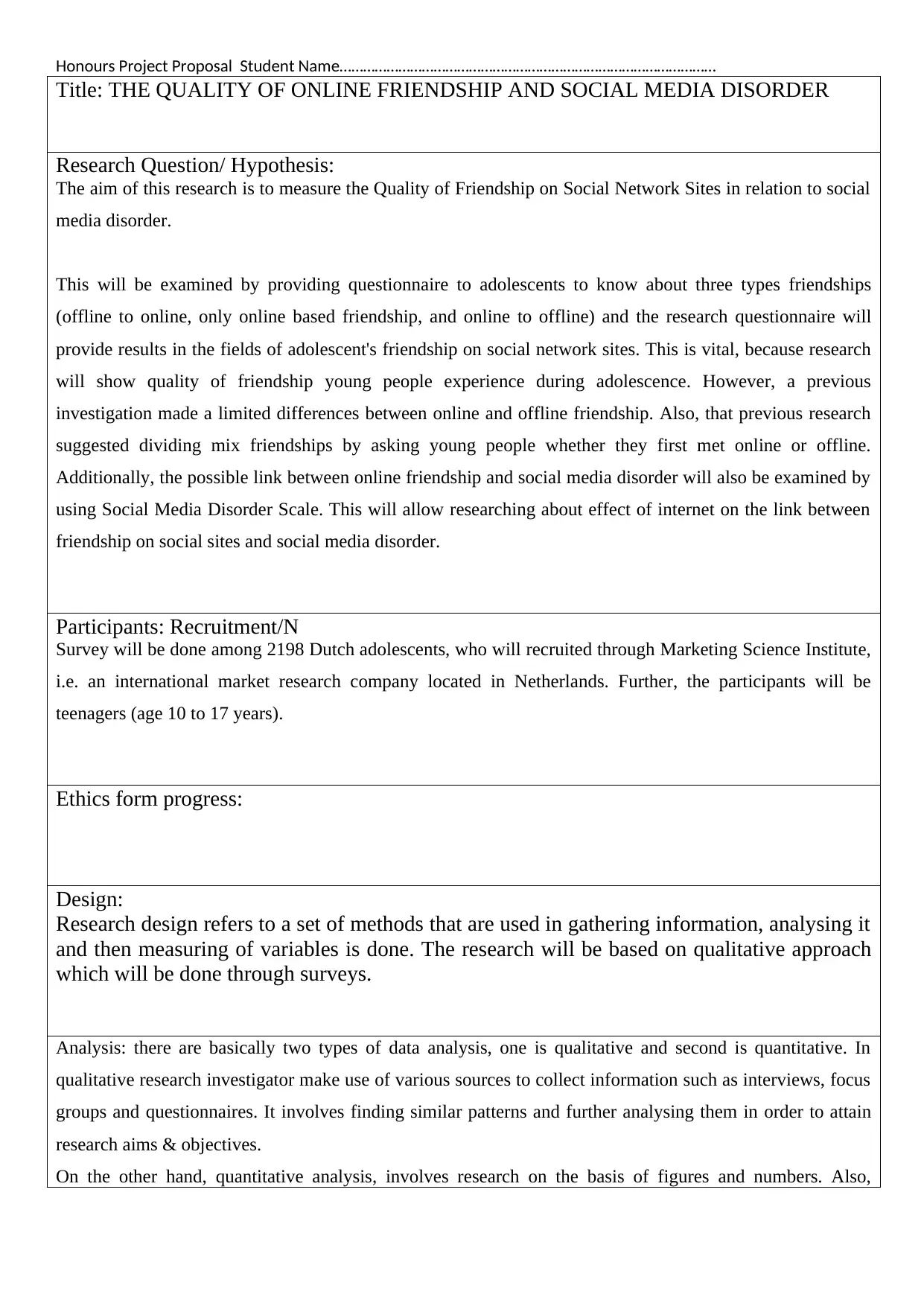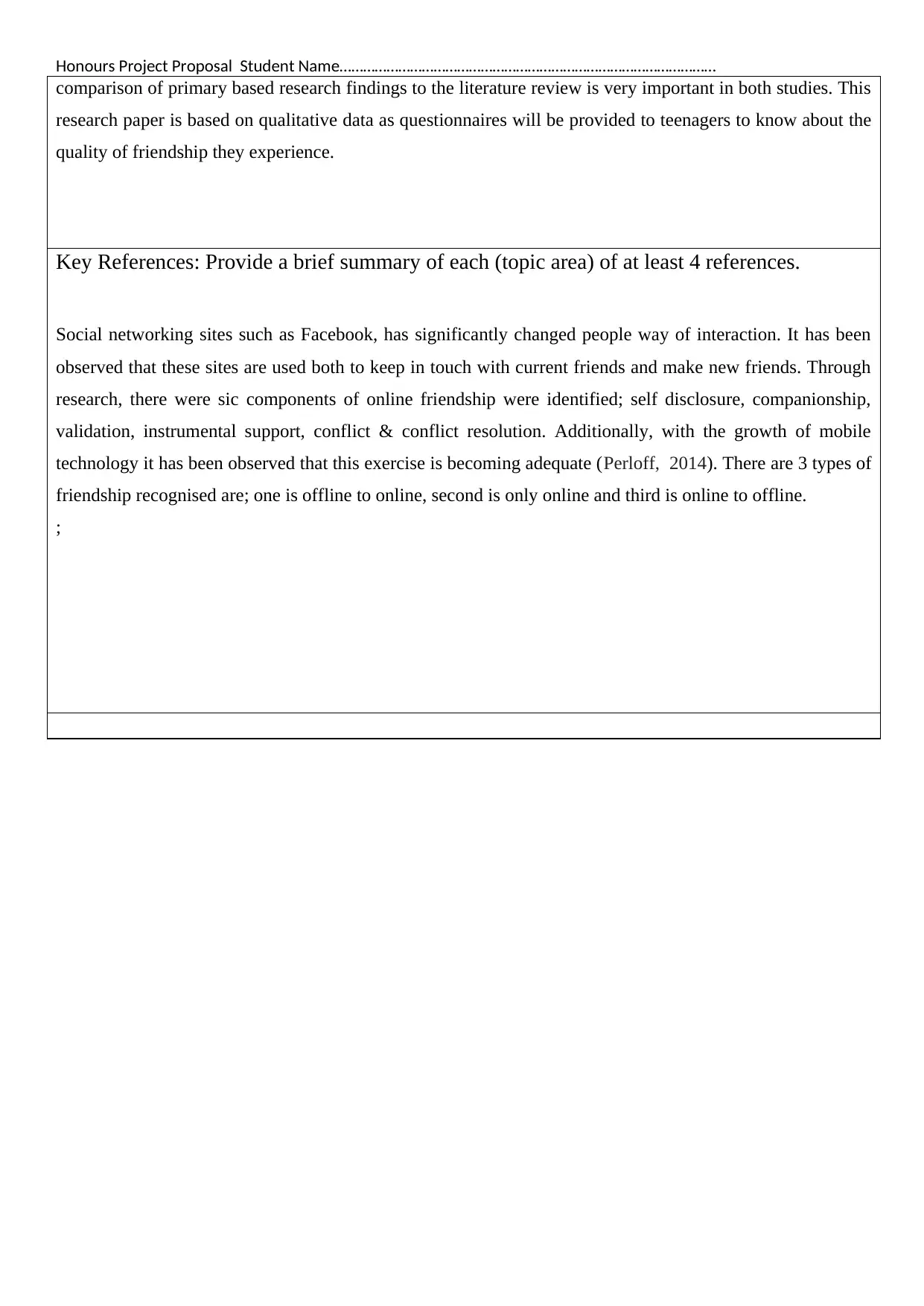Research on Online Friendship, Social Media, and Adolescents
VerifiedAdded on 2020/12/18
|2
|606
|490
Report
AI Summary
This report investigates the quality of online friendships and their relationship with social media disorder among adolescents. The research, conducted through questionnaires administered to 2198 Dutch adolescents, explores three types of friendships: offline-to-online, purely online, and online-to-offline. The study aims to measure the quality of these friendships and assess the potential link between online friendships and social media disorder using the Social Media Disorder Scale. The research design is qualitative, relying on survey data to analyze friendship patterns and their implications. The report highlights the importance of understanding how social networking sites, such as Facebook, have reshaped interactions and the significance of distinguishing between different types of friendships in this context, referencing key research on online friendship components like self-disclosure and companionship.
1 out of 2







![[object Object]](/_next/static/media/star-bottom.7253800d.svg)